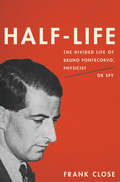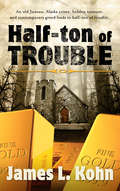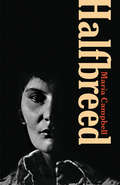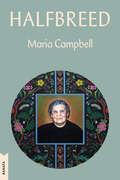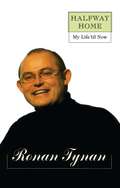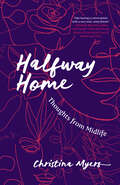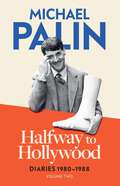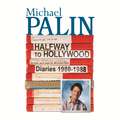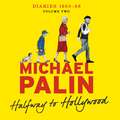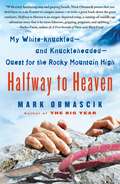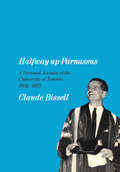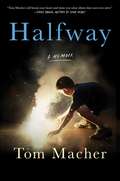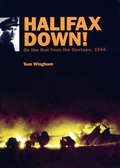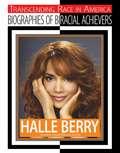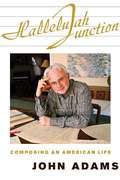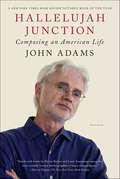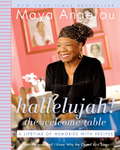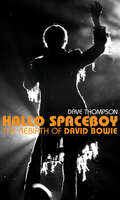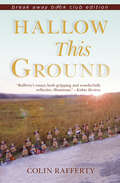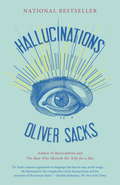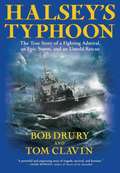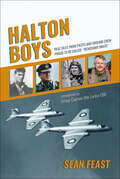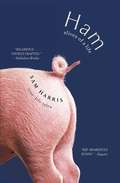- Table View
- List View
Half-Life: The Divided Life of Bruno Pontecorvo, Physicist or Spy
by Frank CloseBruno Pontecorvo dedicated his career to hunting for the Higgs boson of his day: the neutrino, a nearly massless particle considered essential to the process of nuclear fission. His work on the Manhattan project under Enrico Fermi confirmed his reputation as a brilliant physicist and helped usher in the nuclear age. He should have won a Nobel Prize, but late in the summer of 1950 he vanished. At the height of the Cold War, Pontecorvo had disappeared behind the Iron Curtain. In Half-Life, physicist and historian Frank Close offers a heretofore untold history of Pontecorvo’s life, based on unprecedented access to his friends, family, and colleagues. With all the elements of a Cold War thriller-classified atomic research, an infamous double agent, a kidnapping by Soviet operatives-Half-Life is a history of particle physics at perhaps its most powerful: when it created the bomb.
Half-Ton of Trouble: An old Juneau crime, hidden treasure, and contemporary greed leads to half-ton of trouble
by James KohnOld man Denton's life is plagued by a secret. He is victim of his momentary crime of greed committed during Juneau's mining heydays. As his mind unravels in illness he longs for absolution for his youthful crime. After a lifetime of sorrow and regret, the greed of his past sparks the hopes and dreams of a disillusioned Juneau tourist merchant and an Islamic radical. As they seek Denton's hidden treasure their ambitions blind them to strong forces seeking justice.
Halfbreed
by Maria CampbellA new, fully restored edition of the essential Canadian classic.An unflinchingly honest memoir of her experience as a Métis woman in Canada, Maria Campbell's Halfbreed depicts the realities that she endured and, above all, overcame. Maria was born in Northern Saskatchewan, her father the grandson of a Scottish businessman and Métis woman--a niece of Gabriel Dumont whose family fought alongside Riel and Dumont in the 1885 Rebellion; her mother the daughter of a Cree woman and French-American man. This extraordinary account, originally published in 1973, bravely explores the poverty, oppression, alcoholism, addiction, and tragedy Maria endured throughout her childhood and into her early adult life, underscored by living in the margins of a country pervaded by hatred, discrimination, and mistrust. Laced with spare moments of love and joy, this is a memoir of family ties and finding an identity in a heritage that is neither wholly Indigenous or Anglo; of strength and resilience; of indominatable spirit.This edition of Halfbreed includes a new introduction written by Indigenous (Métis) scholar Dr. Kim Anderson detailing the extraordinary work that Maria has been doing since its original publication 46 years ago, and an afterword by the author looking at what has changed, and also what has not, for Indigenous people in Canada today. Restored are the recently discovered missing pages from the original text of this groundbreaking and significant work.
Halfbreed: Kanata Classics Edition (Kanata Classics)
by Maria CampbellPart of the inaugural Kanata Classics list, with a new introduction by the author, Halfbreed is an essential Canadian classic, a story so powerfully told that it will leave a lasting impact on the reader.An unflinchingly honest memoir of her experience as a Métis woman in Canada, Maria Campbell's Halfbreed depicts the realities that she endured and, above all, overcame. Maria was born in Northern Saskatchewan, her father the grandson of a Scottish businessman and Métis woman--a niece of Gabriel Dumont whose family fought alongside Riel and Dumont in the 1885 Rebellion; her mother the daughter of a Cree woman and French-American man. This extraordinary account, originally published in 1973, bravely explores the poverty, oppression, alcoholism, addiction, and tragedy Maria endured throughout her childhood and into her early adult life, underscored by living in the margins of a country pervaded by hatred, discrimination, and mistrust. Laced with spare moments of love and joy, this is a memoir of family ties and finding an identity in a heritage that is neither wholly Indigenous or Anglo; of strength and resilience; of indominatable spirit.
Halfway Home: My Life 'til Now
by Ronan TynanYes, I am a singer. But I am also a horseman, an athlete, and a doctor. I am a son, a brother, and a friend. I can sing as I do only because of the life that I've led. With each decade, I've found myself in very different, evermore challenging arenas, but the many stages of my life have always intertwined. I have moved from one stage to the next as if on a wild steeplechase, keeping my eye fixed straight ahead and above me. If there is a single line connecting all the episodes and main events of my life it is this -- a gift both given and received. -- from the IntroductionInHalfway Home,a beautifully written memoir, Ronan Tynan, a member of the enormously popular Irish Tenors, shares his remarkable story of overcoming adversity and attaining worldwide success in several different areas. Diagnosed with a lower limb disability at birth, Ronan Tynan had his legs amputated below the knee when he was twenty years old. Eight weeks later, he was climbing the stairs of his college dorm, and within a year, he was winning races in the Paralympic Games, amassing eighteen gold medals and fourteen world records. After becoming the first disabled person ever admitted to the National College of Physical Education, he served a short stint in the prosthetics industry and began a new career in medicine. He continued his studies at Trinity College, where he specialized in orthopedic sports injuries. After earning his medical degree, Ronan chose music for the next act in his life. Less than one year after he began studying voice, he won both the John McCormick Cup for Tenor Voice and the BBC talent showGo for It. He went on to win the prestigious International Operatic Singing Competition in France, and in 1998 his debut Sony album,My Life Belongs to You,became a top-five hit in England within just two weeks and eventually went platinum. Later that year, he was invited to join The Irish Tenors, furthering a journey that started in a small Irish village and has brought him to the world's grandest stages. InHalfway Home,Tynan movingly describes his life story, which Barbara Walters called "so amazing you may find it hard to believe. "
Halfway Home: Thoughts from Midlife
by Christina MyersAward-winning author Christina Myers navigates the uncharted territory of midlife in a time of rapid social, cultural, and environmental change. Modern midlife is finding oneself halfway home but without any reliable maps for the route ahead. With wit and warmth, these personal essays move from a first bra to first hot flashes to consider the lessons we learn through media and culture––and from each other––about bodies, sexuality, fatphobia, gender roles, and what we should want in life. Christina Myers explores the ways that beauty standards and cultural expectations around femininity have shaped our identities and how we might shed those going forward; the power of friendships and the value of having other women to learn from; the anxiety of moving through motherhood into menopause in a time of global environmental crisis and political upheaval; and the uncertainty of how this stage of life should unfold, as old systems shift and crumble. Though our maps for midlife are never identical, we discover familiar paths and common landmarks in each other’s stories; these essays remind us there are others on this trail with us, just behind or just ahead, out of sight. We are not alone.
Halfway To Hollywood: Diaries 1980-1988 (Volume Two)
by Michael PalinMichael Palin's bestselling diaries of the 1980s.After a live performance at the Hollywood Bowl, The Pythons made their last performance together in 1983 in the hugely successful MONTY PYTHON'S MEANING OF LIFE. Writing and acting in films and television then took over much of Michael's life, culminating in the smash hit A FISH CALLED WANDA (for which he won a BAFTA for Best Supporting Actor), and the first of his seven celebrated television journeys for the BBC. He co-produced, wrote and played the lead in THE MISSIONARY opposite Maggie Smith, who also appeared with him in A PRIVATE FUNCTION, written by Alan Bennett. Such was his fame in the US, he was enticed into once again hosting the enormously popular show Saturday Night Live, in one edition of which his mother makes a highly successful surprise guest appearance. He filmed several journeys for television and became chairman of the pressure group, Transport 2000. His family remains a constant as his and Helen's children enter their teens.
Halfway To Hollywood: Diaries 1980-1988 (Volume Two)
by Michael PalinMichael Palin's bestselling diaries of the 1980s.After a live performance at the Hollywood Bowl, The Pythons made their last performance together in 1983 in the hugely successful MONTY PYTHON'S MEANING OF LIFE. Writing and acting in films and television then took over much of Michael's life, culminating in the smash hit A FISH CALLED WANDA (for which he won a BAFTA for Best Supporting Actor), and the first of his seven celebrated television journeys for the BBC. He co-produced, wrote and played the lead in THE MISSIONARY opposite Maggie Smith, who also appeared with him in A PRIVATE FUNCTION, written by Alan Bennett. Such was his fame in the US, he was enticed into once again hosting the enormously popular show Saturday Night Live, in one edition of which his mother makes a highly successful surprise guest appearance. He filmed several journeys for television and became chairman of the pressure group, Transport 2000. His family remains a constant as his and Helen's children enter their teens.
Halfway To Hollywood: Diaries 1980-1988 (Volume Two)
by Michael PalinAfter a live performance at the Hollywood Bowl, The Pythons made their last performance together in 1983 in the hugely successful MONTY PYTHON'S MEANING OF LIFE. Writing and acting in films and television then took over much of Michael's life, culminating in the smash hit A FISH CALLED WANDA (for which he won a BAFTA for Best Supporting Actor), and the first of his seven celebrated television journeys for the BBC. He co-produced, wrote and played the lead in THE MISSIONARY opposite Maggie Smith, who also appeared with him in A PRIVATE FUNCTION, written by Alan Bennett. Such was his fame in the US, he was enticed into once again hosting the enormously popular show Saturday Night Live, in one edition of which his mother makes a highly successful surprise guest appearance. He filmed several journeys for television and became chairman of the pressure group, Transport 2000. His family remains a constant as his and Helen's children enter their teens.Read by Michael Palin(p) 2009 Orion Publishing Group
Halfway To Hollywood: Diaries 1980-1988 (Volume Two)
by Michael PalinMichael Palin's bestselling diaries of the 1980s.After a live performance at the Hollywood Bowl, The Pythons made their last performance together in 1983 in the hugely successful MONTY PYTHON'S MEANING OF LIFE. Writing and acting in films and television then took over much of Michael's life, culminating in the smash hit A FISH CALLED WANDA (for which he won a BAFTA for Best Supporting Actor), and the first of his seven celebrated television journeys for the BBC. He co-produced, wrote and played the lead in THE MISSIONARY opposite Maggie Smith, who also appeared with him in A PRIVATE FUNCTION, written by Alan Bennett. Such was his fame in the US, he was enticed into once again hosting the enormously popular show Saturday Night Live, in one edition of which his mother makes a highly successful surprise guest appearance. He filmed several journeys for television and became chairman of the pressure group, Transport 2000. His family remains a constant as his and Helen's children enter their teens.
Halfway to Heaven: My White-knuckled--and Knuckleheaded--Quest for the Rocky Mountain High
by Mark ObmascikFat, forty-four, father of three sons, and facing a vasectomy, Mark Obmascik would never have guessed that his next move would be up a 14,000-foot mountain. But when his twelve-year-old son gets bitten by the climbing bug at summer camp, Obmascik can't resist the opportunity for some high-altitude father-son bonding by hiking a peak together. After their first joint climb, addled by the thin air, Obmascik decides to keep his head in the clouds and try scaling all 54 of Colorado's 14,000-foot mountains, known as the Fourteeners -- and to do them in less than one year. The result is Halfway to Heaven, Pulitzer Prize-winning journalist Obmascik's rollicking, witty, sometimes harrowing, often poignant chronicle of an outrageous midlife adventure that is no walk in the park, although sometimes it's A Walk in the Woods -- but with more sweat and less oxygen. Half a million people try climbing a Colorado Fourteener every year, but only twelve hundred have reported summiting them all. Can an overweight, stay-at-home dad become No. 1,201? With his ebullient personality and sparkling prose, Obmascik brings us inside the quirky, colorful subculture of mountaineering obsessives who summit these mountains year after year. Honoring his concerned wife's orders not to climb alone, Obmascik drags old friends up the slopes, some of them lifelong flatlanders tasting thin air for the first time, and lures seasoned Rockies junkies into taking on a huffing, puffing newbie by bribing them with free beer, lunches, and car washes. Among the new friends he makes are an ex-drag racer trying to perform a headstand on every summit, the lead oboe player in a Hebrew salsa band, and a climber with the counterproductive pre-climb ritual of gulping down four beers and a burrito. Along the way, Obmascik experiences the raw, rowdy, and rarely seen intimacy of male friendship, braced by the double intoxicants of adrenaline and altitude. Though danger is always present -- the Colorado Fourteeners have killed more climbers than Mount Everest -- Mark knows his aging scalp can't afford the hair-raising adventures of Jon Krakauer's Into Thin Air, and his quest becomes a story of family, friendship, and fraternity. In Obmascik's summer of climbing, he loses fifteen pounds, finds a few dozen man-dates, and gains respect for the history of these storied mountains (home to cannibalism, gold rushes, shoot-outs, and one of the nation's most famed religious shrines). As much about midlife and male bonding as it is about mountains, Halfway to Heaven tells how weekend warriors can survive them all as they reach for those most distant things -- the summits of mountains and a teenage son. And as one man exceeds the physical achievements of his youth, he discovers that age -- like summit height -- is just a number.
Halfway up Parnassus: A Personal Account of the U of T, 1932-1971
by Claude BissellHalfway up Parnassus is a personal account of the University of Toronto with particular emphasis on the period when Dr. Bissell was its president, from 1958 to 1971. The first half of that period was the flowering of the old, self-confident university, with its established patterns of government, and its untroubled constituents. The second half saw the slow, powerful emergence of a new university, uncertain of itself and its role, seeking to find a form for democratic aspirations--not, however, without some dramatic confrontations with left-wing students. Nowhere in Canada was the process more sharply defined than at the University of Toronto. This book records that process from the point of view of a major participant. It is also intended as a series of portraits of major academic figures and as an intimate recollection of a society that is passing away.It is not a philosophical book about education, but a human document--an attempt to render the tone of academic society, and in this account Dr. Bissell has combined, to great effect, autobiography, descriptive narration, and historical analysis. The book will be of interest to Canadians concerned about our intellectual and cultural life, and to academic societies everywhere.
Halfway: A Memoir
by Tom MacherFrom a searing new literary voice, a raw, compulsively readable memoir about a young man seeking hope, community, and ultimately recovery from addiction in a series of halfway houses and boys’ homes—the first book to so vividly capture this world.In his late teens Tom Macher rebelled against a world that seemed stacked against him. Raised in a broken family and estranged from an absentee father suffering with AIDS, Macher turned to alcohol to escape the painful loneliness of his reality. In quick succession, he is kicked out of school, and then his mother’s house, sent to a boys’ home in Montana, and later, a halfway house in a truck-stop town of Louisiana. It was there that Macher encounters a community of young men struggling to survive—outcasts and thieves, liars and ex-cons, men seeking redemption, men running from the past. As he moves further away from boyhood and embraces a hard-won sobriety, these men—the broken, the hardscrabble, the near gone—become his salvation. Macher captures the trials of sobriety—suicide, death, recovery—and the unusual beauty that forms in the bonds of those who suffer. In visceral, striking prose, he introduces the unforgettable characters he meets along the way, from a former child actor, a young teen struggling with schizophrenia, a tough-love addiction counselor, a sex-addicted social worker, to Matt O, who became Macher’s loyal friend and wingman. Raw, disarming, frenetic, and subversive, Halfway is a brutally honest portrait of the world of down-and-out recovering alcoholics, and a story of how, in their darkest hour, these men create the bonds that form a family.
Halifax Down!: On the Run from the Gestapo, 1944
by Tom WinghamA World War II aviator tells his story of evading the enemy in occupied territory after being shot down, and what happened to the rest of his crew. On the night of April 22, 1944, Tom Wingham was the bomb aimer in the crew of a 76 Squadron Halifax shot down while on the way to bomb Düsseldorf. Coming to in a tangle of parachute and harness straps, he realized the precariousness of his situation and so, dazed and aching with a painful concussion and navigating by the stars alone, he quickly set off on his long and difficult journey home through occupied territory, constantly depending on the kindness of others who risked their lives to help keep him hidden. He made his way from Holland, at the hands of &“The Escape&” and was then passed via &“L&’Armée Secrète,&” a London-run organization operating in the east of Belgium, but fell right into the path of the Gestapo. In a deadly game of hide and seek, he evaded his captors long enough to witness the retreat of German soldiers as he stayed at the house of Madame Schoofs, which became a temporary German HQ. In the 1980s, Tom Wingham assisted a Dutch air historian with some research and this prompted him to look into the details of his own crash. What he uncovered not only shed more light on his own story but also those of his fellow crew members. He plotted approximately where each person landed that fateful night—and slowly their incredible stories emerged.
Halle Berry: Transcending Race in America (Biographies of Biracial Achievers)
by Kerrily SapetOn March 24, 2002, Halle Berry made history. She became the first African American to win an Academy Award for Best Actress in a leading role. Halle's Oscar came for her work in Monster's Ball, in which she portrayed Leticia Musgrove, a tough yet vulnerable waitress who becomes involved in an interracial affair. Initially, the film's producer had balked at casting Halle in the role of Leticia. He believed she was too beautiful for the part.
Hallelujah Junction: Composing an American Life
by John AdamsA book unlike anything ever written by a composer-- part memoir, part description and explication of the creative process-- Hallelujah Junction is an absorbing journey across the musical landscape of America and through the life and times of John Adams, one of today's most admired and performed composers. Adams traces his musical lineage back to the era of swing bands and to his grandfather's New Hampshire dance hall, where his clarinetist father met his jazz singer mother. He evokes in vivid detail his own musical childhood in New England, with its marching bands and small-town orchestras, and describes his start as a serious composer in college, his cross-country journey to California, and his gradual rise as one of the most important figures in American music. Hallelujah Junction is not only a deeply personal recollection but also a firsthand encounter with many of the emblematic themes and personalities of contemporary culture.
Hallelujah Junction: Composing an American Life
by John AdamsJohn Adams is one of the most respected and loved of contemporary composers, and "he has won his eminence fair and square: he has aimed high, he has addressed life as it is lived now, and he has found a language that makes sense to a wide audience" (Alex Ross, The New Yorker). Now, in Hallelujah Junction, he incisively relates his life story, from his childhood to his early studies in classical composition amid the musical and social ferment of the 1960s, from his landmark minimalist innovations to his controversial "docu-operas." Adams offers a no-holds-barred portrait of the rich musical scene of 1970s California, and of his contemporaries and colleagues, including John Cage, Steve Reich, and Philip Glass. He describes the process of writing, rehearsing, and performing his renowned works, as well as both the pleasures and the challenges of writing serious music in a country and a time largely preoccupied with pop culture.Hallelujah Junction is a thoughtful and original memoir that will appeal to both longtime Adams fans and newcomers to contemporary music. Not since Leonard Bernstein's Findings has an eminent composer so candidly and accessibly explored his life and work. This searching self-portrait offers not only a glimpse into the work and world of one of our leading artists, but also an intimate look at one of the most exciting chapters in contemporary culture.
Hallelujah! The Welcome Table: A Lifetime of Memories with Recipes
by Maya AngelouThroughout Maya Angelou&’s life, from her childhood in Stamps, Arkansas, to her world travels as a bestselling writer, good food has played a central role. Preparing and enjoying homemade meals provides a sense of purpose and calm, accomplishment and connection. Now in Hallelujah! The Welcome Table, Angelou shares memories pithy and poignant—and the recipes that helped to make them both indelible and irreplaceable. Angelou tells us about the time she was expelled from school for being afraid to speak—and her mother baked a delicious maple cake to brighten her spirits. She gives us her recipe for short ribs along with a story about a job she had as a cook at a Creole restaurant (never mind that she didn&’t know how to cook and had no idea what Creole food might entail). There was the time in London when she attended a wretched dinner party full of wretched people; but all wasn&’t lost—she did experience her initial taste of a savory onion tart. She recounts her very first night in her new home in Sonoma, California, when she invited M. F. K. Fisher over for cassoulet, and the evening Deca Mitford roasted a chicken when she was beyond tipsy—and created Chicken Drunkard Style. And then there was the hearty brunch Angelou made for a homesick Southerner, a meal that earned her both a job offer and a prophetic compliment: &“If you can write half as good as you can cook, you are going to be famous.&” Maya Angelou is renowned in her wide and generous circle of friends as a marvelous chef. Her kitchen is a social center. From fried meat pies, chicken livers, and beef Wellington to caramel cake, bread pudding, and chocolate éclairs, the one hundred-plus recipes included here are all tried and true, and come from Angelou&’s heart and her home. Hallelujah! The Welcome Table is a stunning collaboration between the two things Angelou loves best: writing and cooking.
Hallo Spaceboy: The Rebirth of David Bowie
by Dave ThompsonBy 1987, David Bowie was at a creative, critical, and commercial low. His most recent album was dismissed by the music press, his latest tour written off as a disaster. Fifteen years after becoming the most colourfully controversial superstar in recent rock history, Bowie was seen as a spent force.Almost twenty years later, Bowie has re-established himself at the very peak of his profession in one of the most extraordinary comebacks in rock history. His 1995 release of the critically-astonishing 1:Outside album has been followed by equally groundbreaking efforts. He is a content family man, married to super-model Iman, and one of the richest musicians in the world.While most biographies on Bowie still focus on his early years, Hallo Spaceboy: The Rebirth of David Bowie is the first to chronicle the comeback in detail. Drawing upon exclusive interviews with fans, colleagues and associates, it is also the long-gestating follow-up to Dave Thompson’s Moonage Daydream (1987), widely hailed among the best David Bowie biographies.
Hallow This Ground
by Colin RaffertyBeginning outside the boarded-up windows of Columbine High School and ending almost twelve years later on the fields of Shiloh National Military Park, Hallow This Ground revolves around monuments and memorials--physical structures that mark the intersection of time and place. In the ways they invite us to interact with them, these sites teach us to recognize our ties to the past. Colin Rafferty explores places as familiar as his hometown of Kansas City and as alien as the concentration camps of Poland in an attempt to understand not only our common histories, but also his own past, present, and future. Rafferty blends the travel essay with the lyric, the memoir with the analytic, in this meditation on the ways personal histories intersect with History, and how those intersections affect the way we understand and interact with Place.
Hallucinations
by Oliver SacksNATIONAL BESTSELLER • The "poet laureate of medicine" (The New York Times) and author of The Man Who Mistook His Wife for a Hat weaves together stories of mind-altering experiences to reveal what they tell us about our brains, our folklore and culture, and why the potential for hallucination exists in us all. "Sacks has turned hallucinations from something bizarre and frightening into something that seems part of what it means to be a person. His book, too, is a medical and human triumph.&” —The Washington Post &“An absorbing plunge into a mystery of the mind.&” —Entertainment WeeklyTo many people, hallucinations imply madness, but in fact they are a common part of the human experience. These sensory distortions range from the shimmering zigzags of a visual migraine to powerful visions brought on by fever, injuries, drugs, sensory deprivation, exhaustion, or even grief. Hallucinations doubtless lie behind many mythological traditions, literary inventions, and religious epiphanies. Drawing on his own experiences, a wealth of clinical cases from among his patients, and famous historical examples ranging from Dostoevsky to Lewis Carroll, the legendary neurologist Oliver Sacks investigates the mystery of these sensory deceptions: what they say about the working of our brains, how they have influenced our folklore and culture, and why the potential for hallucination is present in all humans.
Halsey's Typhoon: The True Story of a Fighting Admiral, an Epic Storm, and an Untold Rescue
by Bob Drury Tom ClavinIn the tradition of The Perfect Storm and Flags of Our Fathers , Halsey’s Typhoon chronicles the epic tale of men clashing against the ruthless forces of war and nature. In December 1944, America’s most popular and colorful naval hero, Admiral William “Bull” Halsey, unwittingly sailed his undefeated Pacific Fleet into the teeth of the most powerful storm on earth. Three destroyers were capsized sending hundreds of sailors and officers into the raging, shark infested waters. Over the next sixty hours, small bands of survivors fought seventy-foot waves, exhaustion, and dehydration to await rescue at the hands of the courageous Lt. Com. Henry Lee Plage, who, defying orders, sailed his tiny destroyer escort USS Tabberer through 150 mph winds to reach the lost men. Thanks to documents that have been declassified after sixty years and dozens of first-hand accounts from survivors—including former President Gerald Ford—one of the greatest World War II stories, and a riveting tale of survival at sea, can finally be told. Image descriptions added.
Halton Boys: True Tales from Pilots and Ground Crew Proud to be Called 'Trenchard Brats'
by Sean FeastA history of the twentieth-century Royal Air Force training programme as told by the men who lived it.The RAF Halton Apprenticeship Scheme has a deserved reputation for excellence. The brainchild of MRAF Hugh Trenchard, the founder of the Royal Air Force, it took the “traditional” idea of an apprenticeship and interpreted it in a novel way. It allowed teenage boys from any social background or geography to learn a technical trade that would equip them for their future lives, within and beyond the RAF. It also gave the best an opportunity to become pilots and break into the once public-school-dominated officer class. Of the 50,000 boys trained as apprentices, seventeen won the Sword of Honour at Cranwell, and more than 1,200 were commissioned with 110 achieving Air Rank. Eighteen have been knighted, with well over 1,000 others being honoured at various levels of state.More than a hundred Halton Boys served as pilots in the Battle of Britain (and many more as airframe/engine fitters and armourers), including former Olympic hurdler Don Finlay. Others like Gerry Blacklock and Pat Connolly flew bombers on perilous missions over Western Europe or took part in the famous “Dams” Raid. Then there were the three men murdered for their part in the Great Escape, and those who battled and survived years as prisoners of the Japanese in the Far East.In the jet era, ex-apprentice Graham Hulse became an “ace” in Korea, serving with an American fighter squadron, and Mike Hines went on to become OC 617 Squadron after having first flown operations during the Suez crisis. Others like Charles Owen became a pioneer commercial jet pilot, and Peter Goodwin had the misfortune of being captured in the first Gulf War and used as a human shield.Some forged successful careers beyond the RAF, like Lawrie Haynes, who was on the main board at Rolls-Royce and is now chairman of the Board of Trustees of the Royal Air Force Benevolent Fund, and Eugene Borysuik—one of the many Polish apprentices trained at Halton, who enjoyed a successful career at GEC. And there were many others beyond air and ground crew including policemen, government officials and even bishops whose careers started with the Halton family.This is the story of Halton told through and by the boys who were there and who are still proud to be called “Trenchard Brats.”
Ham: Essays and Stories
by Sam Harrisham (noun) [hæm]<P> 1. the hind leg of a hog, salted, smoked, and cured<P> 2. second son of Noah <P> 3. somebody who performs in an exaggerated showy style -always hamming it up <P> Just when you thought you knew everything about ham, you discover that ham is also: <P> 4. a reason to laugh about everyday life, and <P> 5. an irresistible collection of humorous essays from a man who was born to entertain us. <P> In sixteen brilliantly observed true stories, Sam Harris emerges as a natural humorist in league with David Sedaris, Chelsea Handler, Carrie Fisher, and Steve Martin, but with a voice uniquely his own. Praised by the Chicago Sun-Times for his "manic, witty commentary," and with a storytelling talent the New York Times calls "New Yorker- worthy," he puts a comedic spin on full-disclosure episodes from his own colorful life. What better place to find painfully funny material than in growing up gay, gifted, and ambitious in the heart of the Bible belt? And that's just the first cut: From partying to parenting, from Sunday school to getting sober, these slices of Ham will have you laughing and wiping away salty tears in equal measure with their universal and down-to-earth appeal. After all, there's a little ham in all of us.
